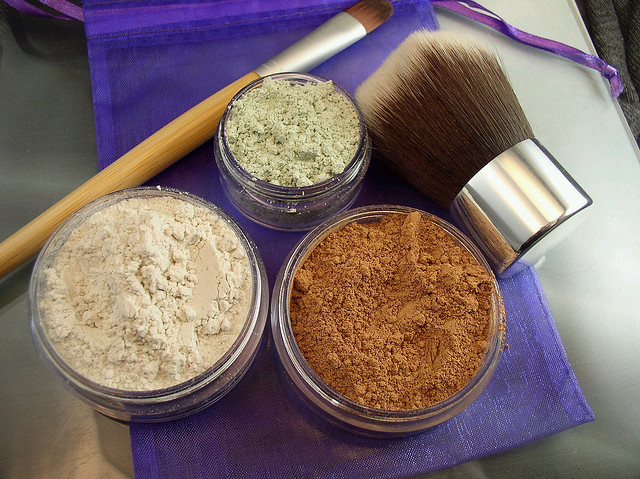
It’s no secret that sales of mineral makeup have skyrocketed. Whereas it used to be available only through special television offers or unique online sites, now you can find varying brands just about anywhere. The question is: Is this makeup really better for your skin, or is it all just hype?
Mineral Makeup Contains Minerals
The big claim behind mineral makeup is that it’s more “natural” than regular makeup because it’s made from crushed, pure minerals. These include things like zinc oxide, titanium dioxide, mica, and iron oxides.
That mineral makeup contains these minerals doesn’t really set them apart, however. Take a look at your regular foundation, concealer, or blush, and you’re likely to read the same ingredients there.
So what’s the real difference? The other ingredients-or lack thereof.
Mineral Makeup Contains Fewer Potentially Toxic Ingredients
The really nice thing about mineral makeup is that it contains fewer potentially toxic ingredients than other types of makeup. I’m talking about those things I’ve suggested you avoid, like preservatives, parabens, mineral oil, chemical dyes, and fragrance. Because mineral makeup is a dry powder made of real minerals, it has a much lower likelihood of becoming contaminated with microbes and bacteria, and thus doesn’t need the preservatives. The minerals themselves have their own pretty colors, so dyes aren’t required either. Always read labels, as some brands are different than others, and unfortunately the more popular mineral makeup becomes, the more variations we’re seeing that do include these ingredients, but on the whole, mineral makeup is often the choice for people with sensitive skin who are likely to be irritated by other ingredients.
Is Mineral Makeup Good for Your Skin?
Another claim made by those selling mineral makeup is that it’s beneficial to the skin. That might be taking it a bit far. It’s not going to get rid of wrinkles or hyperpigmentation, for example. However, the titanium dioxide and zinc oxide are physical sunscreens, so there is a protective effect there, though I would still recommend you put on an additional sunscreen on most days. Zinc oxide is also a natural anti-microbial, helping to fight germs, and a natural anti-inflammatory, which may help calm sensitive skin.
What About Nanoparticles?
The biggest concern with mineral makeup is that it’s made with small particles. Some brands use “micronized” particles and others go super small with “nanoparticles.” The manufacturers are using these smaller particles so the makeup sits lightly on the skin without clogging pores. That’s why many people like mineral makeup, because it feels so light. When the particles become really small, however, there is a slight danger of inhaling them, and they can do damage in the lungs. Read my post, “Micronized Mineral Makeup” for more information and for some suggested brands that do not use nanoparticles. Choose those brands that use the larger “micronized” particles, and be sure to apply your makeup in a well ventilated area.
Should You Try Mineral Makeup?
If you have sensitive or compromised skin that is irritated by regular makeup, by all means try the mineral makeup. It may be more calming for you. Otherwise read labels and go with what feels best to you. Some people love the light feel and natural look, but others find it settles into fine lines and calls attention to dry spots. It is a powder, remember, so if you have dry skin, you’d probably be better with a safe liquid foundation.
What do you think of mineral makeup? Please let us know.
Photo courtesy dreamrdn via Flickr.com.

